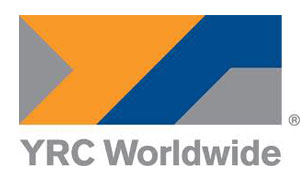“Milestone” reached by YRCW, restructuring scheduled to close in July
YRC Worldwide (YRCW), the financially ailing second-largest less-than-truckload (LTL) company which has lost in excess of $2.7 billion the last four years, says it has reached another “milestone” in its long-awaited restructuring plan now scheduled for completion in July.
Under terms of its latest debt swap plan, supported by more than 95 percent of its senior secured lenders, shareholders will hold less than 2.5 percent of YRCW stock, which has been battered throughout the worst recession to hit trucking companies in more than 70 years.
Also on board with the plan are the Teamsters union, its multi-employer pension plans and all the lenders covered by its asset-backed securitization (ABS) loan facility.
“When we announced the non-binding agreement in principle in February, we noted that our primary objective was to achieve a comprehensive restructuring with a solid foundation for long-term success,” John Lamar, YRCW chief restructuring officer and lead director of YRC Worldwide, said in a statement. “With these agreements, we believe that foundation is now in place, and we remain on target to close the restructuring in July.”
Under the restructuring plan, YRCW gets an immediate infusion of $100 million in new capital to help it stay afloat. YRCW says it also will receive “increased liquidity” from a new asset-based loan (ABL) facility, replacing the current ABS facility. In addition, the restructuring plan contemplates that a portion of the company’s existing loans and other obligations will be exchanged for new securities, including the exchange of some obligations for equity.
This debt-for-equity swap is expected to be accomplished by a series of transactions to be completed in July, YRCW said. As a result, YRCW’s existing shareholders holding approximately 2.5 percent of the company’s outstanding common stock would be subject to further dilution by a management incentive plan and the conversion of certain new securities.
When the plan is done, it’s anticipated that a new, preferred class of stock would account for 72.5 percent of its outstanding shares. Not surprisingly, existing YRCW shares tumbled on the first day of trading following its announcement late Friday. YRCW shares were off 22 percent on midday trading Monday to $1.55.
YRCW executives went out of their way to praise the Teamsters union, which previously has supported the company through a series of wage and pension concessions dating back to 2009. YRCW employs about 25,000 Teamsters, making it the second-largest freight employer of the union (after UPS, with more than 270,000 Teamsters).
“We sincerely appreciate the support given to YRC Worldwide from our lenders, the pension funds and the Teamsters,” Lamar said. “With our stakeholders having shown their confidence in the company by executing these definitive agreements we look forward to completing the restructuring as we have previously announced.”
The credit agreement announced in late February was YRC’s 20th such agreement. A recent report in the Kansas City Business Journal stated that YRC has deferred more than $139 million in pension payments to Teamsters multi-employer plans.
In the fourth quarter of last year, YRCW reported a net loss of $23.1 million, compared with net income of $119.5 million in the 2009 fourth quarter that included a $177 million after-tax gain on debt redemption. Despite the quarterly gain in net income, YRCW reported a net loss of $322 million for all of 2010.
But last year’s fourth quarter marked the fifth consecutive quarter of year-over-year earnings improvement, according to YRCW, which is saddled with more than $1 billion long-term debt with annual revenue of about $5.5 billion. But the company, riding a wave of stronger freight demand by nearly all trucking companies, did enjoy positive operating cash flow for the second half of 2010.
Satish Jindel, principal of SJ Consulting in Pittsburgh, said recently that YRC’s survival hinges on support from at least three of four constituencies: shippers, employees, debt holders, and stockholders.
Lenders have been uncharacteristically patient with YRC, largely because they must feel that they would not be sufficiently compensation in a Chapter 7 liquidation. That’s because of the decline recently in used truck valuations. YRCW has closed terminals and reduced its geographic footprint, which has resulted in a company about one-half the size it was about four years ago. But the company has survived an industry price war led by some of its major competitors, including Con-way and FedEx Freight.
Recently, RBC Capital Markets analyst John Barnes called YRCW a “case study in how to survive a downturn.” Already, in losing more than $2.7 billion, YRC has become the biggest money-losing trucking company ever to remain in business.
YRC Worldwide officials are expected to discuss its latest restructuring in detail during its first quarter conference call for investors slated for this Friday, May 6.
For related articles, please click here.













